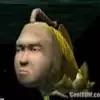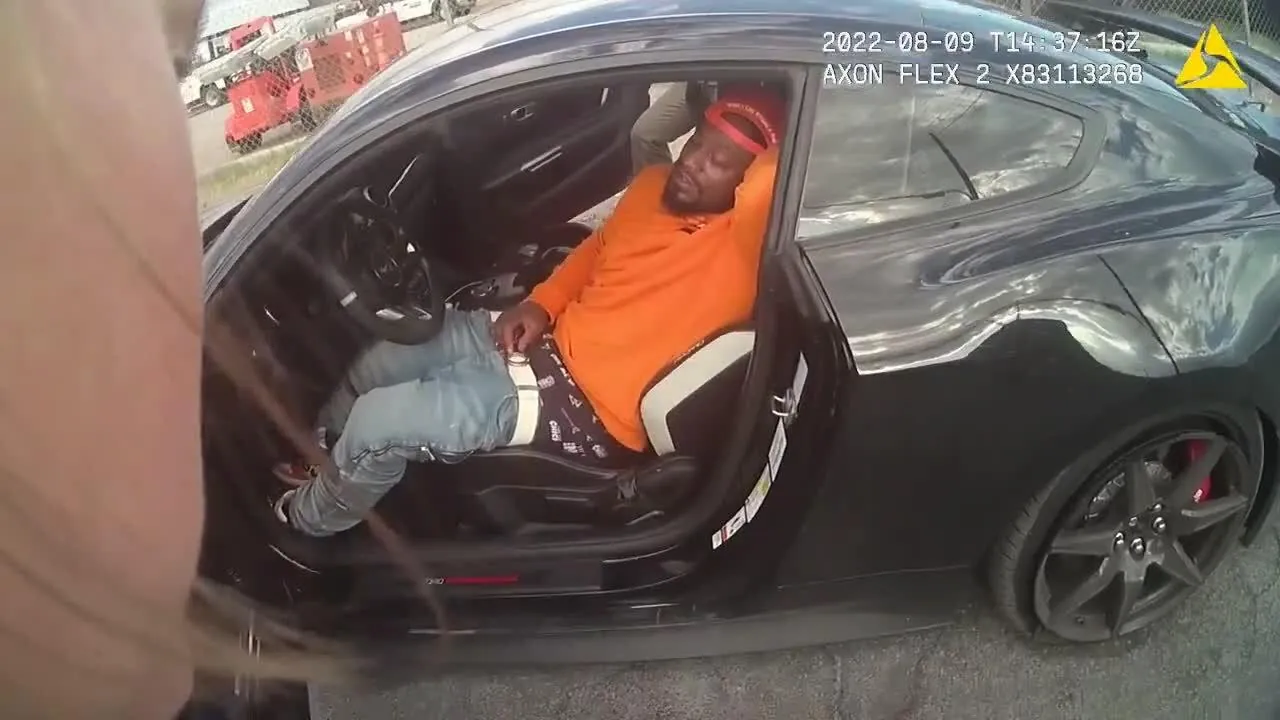Being the LGBTQ+ fans group of Saudi-owned Newcastle United
It’s been just over a year since Newcastle United were taken over by a Saudi-backed consortium.
The Athletic has covered the anniversary in depth, with a piece from Riyadh on how the club is perceived in Saudi Arabia, an article on the exciting future that the investment has brought and also a look at how much Saudi influence there actually is at the club.
The experience of being a Newcastle United fan could not be more different from a year ago. St James’ Park is now an exciting place to visit, there are realistic ambitions of breaking into Europe and the football is entertaining.
But the transformation has come with considerable moral questions. The Saudi sovereign wealth fund, the Public Investment Fund (PIF), and its 80 per cent share in the club have raised serious and important issues about club ownership and state influence.
Co-owner Amanda Staveley, whose PCP Capital Partners firm holds 10 per cent of the club, has insisted the Saudi PIF is an “autonomous commercially driven investment fund” and the state does not have a say in club affairs. However, PIF is chaired by Mohammed bin Salman, the crown prince and de facto ruler of the kingdom.
In addition to Bin Salman, the PIF board is composed of six ministers from the Saudi government and an advisor from the Royal Court. Yasir Al-Rumayyan, the Newcastle chairman, is the governor of the investment fund but he does not hold an official government position.
At the time of the takeover, Amnesty International, the human rights charity, said the deal “raises a host of deeply troubling questions about sportswashing, human rights and the integrity of English football”.
Human Rights Watch, the international non-governmental organisation, says on its website: “Saudi Arabia spends billions of dollars hosting major entertainment, cultural, and sporting events as a deliberate strategy to deflect from the country’s image as a pervasive human rights violator. Scores of human rights activists and dissidents remain in prison or on trial for their peaceful criticism. Authorities failed to hold high-level officials accountable for suspected involvement in the murder of Saudi journ*list Jamal Khashoggi in 2018. Through 2021, the Saudi-led coalition continued a military campaign against the Houthi rebel group in Yemen that has included scores of unlawful airstrikes that have killed and wounded thousands of civilians.”
Last year, Adam Crafton detailed the abuse LGBTQ+ Saudis have experienced including conversion therapy and physical and mental torture. LGBTQ+ Saudis accused the Premier League of “pinkwashing” by promoting the Rainbow Laces inclusion campaign while permitting the Saudi takeover of Newcastle.
When the takeover was announced, United with Pride, the Newcastle United LGBTQ+ fans group, released a statement saying it “acknowledged that Saudi Arabia as a country is one of the least tolerant of LGBTQ+ and gender rights anywhere in the world” but it hoped the takeover could lead to “a positive influence to improving the conditions for the LGBTQ+ community in Saudi Arabia”.
The statement received criticism from other LGBTQ+ fan groups and, as a result, United with Pride left Pride in Football, the network of LGBTQ+ fan groups in football.
One year on, Ian Pearson-Brown, former chair of United with Pride and now treasurer, discusses the statement, whether there has been any progress on the group’s ambitions and its relationship with the owners.
Pearson-Brown is sitting in Bobby’s Bar, a regular pre-match spot for United with Pride, about a 20-minute walk from St James’ Park.
He reflects on how busy he’s been with media interest since the takeover. He is a spokesperson in high demand.
How does he feel a year on from the takeover?
“From our perspective, not a lot has changed,” he says and explains that United with Pride is still working closely with the club under its umbrella inclusion brand United as One, which existed before the takeover and has received support from the new owners.
I ask him if there is anything he would change about the group’s controversial statement, now there has been time to reflect. “Well, that statement had been drafted a year before,” he says. “So, we should have probably reviewed it more thoroughly than we did. That said, the takeover happened so suddenly. Suddenly it was like, ‘Oh god, we need to release something now’.
“So while everybody else was celebrating outside St James’ Park, we as volunteers sat in a committee meeting till 11pm trying to just have a quick look over. Would we have changed some of the wording of it? Yes. Sometimes when you put a sentence together and there’s a group of 10 of you doing it, it’s not always going to flow very well. But the message doesn’t change in that we are representing the view of our membership, who believe that engaging with Newcastle United, as we did previously, to promote LGBTQ+ inclusion through our values both in the stadium and online, is the right way to go around tackling wider issues.”
United with Pride’s relationship with the club is key. It is something the group values greatly and it comes up throughout the conversation. Pearson-Brown and his colleagues believe that to achieve progress and have a positive influence, the relationship with the club needs to be protected.
“Some LGBT fans, groups from elsewhere, believed we should have been standing outside the stadium protesting,” he continues. “We had garnered our relationship with a club based on trust and if we had issues, we came to them directly, we didn’t go running to the press or protesting outside the stadium. If we did that, we would not be able to have access to the stadium or to the resources of the United as One team. It would stop a lot of the good work we’ve been doing.
“We have to look at it from a pragmatic point of view and think, ‘We can only control the controllables, we can’t control who owns Newcastle, we can’t control domestic policy in countries in the Middle East’. What we can do is we can put on a good display, monitor social media for anything negative or homophobic and report it. We can promote the mental health campaign to our members and to the wider communities, we can make sure we have a presence at Northern Pride to show the communities football is an open, welcoming space for LGBTQ+ fans.
“Some people say we should down cowtools and stop our engagement work with the club, or some people say we should go support another club… that was never realistically going to happen.”
Pearson-Brown is frustrated about the expectations placed on fans to suddenly stop supporting a club that is in their blood and has been part of their life for decades. It binds their community together and they don’t want to lose that. But why can’t they do that and also raise awareness about human rights abuses in Saudi Arabia?
Proud Lilywhites, the Tottenham Hotspur LGBTQ+ fan group, has criticised Spurs on several occasions and protested outside St James’ Park last season, and there are many climate activists who have been campaigning against clubs they support with banners and social media posts.
“In the UK, hate crime is on the rise, generally, social disorder is on the rise. We’ve had an increase in homophobia, biphobia, transphobia  in stadiums and online in the last year,” Pearson-Brown says.
in stadiums and online in the last year,” Pearson-Brown says.
“If you’re an LGBTQ+ fan, 86 per cent of us have heard some sort of homophobic chanting in a stadium. We are much less likely to be physically active and much more likely to have a long-term mental health problem. We have more barriers to sport. There are a lot of issues to solve within our own country first and within our own north-east population first. They’re the issues that we can have more of an impact on.
“Our reach beyond that is exceptionally limited. You mentioned environmental concerns — yes, we can have those concerns and there isn’t a single fan within our organisation who isn’t conflicted to support Newcastle. However, at the same time, we’re not going to do what that bloke at Everton did and chain ourselves to the posts because we don’t think the message that it conveyed was the right one.
“Will we have conversations with senior people at Newcastle about continuing support for the LGBTQ+ community, both locally and nationally and internationally? Yes, of course. But in terms of how we go around doing that, we’re going to be having that conversation with them and not with other fans groups.”
Having a positive influence on LGBTQ+ rights in Saudi Arabia was a key part of United with Pride’s statement, so are there any signs of some foundations?
“I would severely doubt it at this stage,” he says. “We do talk with Amnesty International every so often to find out not just what is read in the press, but also what goes on. We feel it’s responsible for us to do that. So I guess, ‘It’s watch this space’.
“Saudi Arabia is engaging with a lot of Western organisations in many different ways. Presumably, one of the reasons Facebook, golf and many other organisations do accept this, is a belief that the Saudi Arabian government will change its view on certain human rights issues over time. Remember that their approach to LGBTQ+ inclusion is no different to what ours was in the ’40s and ’50s when we were chemically castrating our war heroes, and that’s 70 years ago. So are we expecting something to change within a year? No, it’ll take a much longer time.”
What about the fact that PIF’s ownership isn’t just a silent investment in Disney or other international companies? PIF is buying into an identity, a culture. Newcastle United has power and influence, it’s a place of worship and refusing to challenge the owners could be seen as washing over the awareness of atrocities in Saudi Arabia.
“I don’t sense anybody’s deleted any of the awareness,” Pearson-Brown says. “There is still a negative area where there’s conflict going on — if you ask me in an ideal world who should own football clubs, I loved Sir John Hall as an owner (former owner of Newcastle United) because he was a local guy done good, made his money locally and invested in the club. Jack Walker at Blackburn did exactly the same thing. In reality, we don’t live in that world anymore in football. Again, what can we as fan groups do about that? Nothing. So, it comes back to controlling the controllables. Asking us to comment on something that is beyond our influence and control is pointless. If you want to ask these questions, ask the Premier League. They’re the ones who’ve approved the owners’ and directors’ test, and approve them as owners.”
Pearson-Brown is confident that the visual presence of the rainbow flag at games, through United with Pride and the club’s upcoming Rainbow Laces match, will have a trickle-down effect and bring important exposure of LGBTQ+ rights to the kingdom. He concedes it is unrealistic to expect laws to change overnight, but many will think it’s ambitious to think that they will ever change when they’re this entrenched.
However, United with Pride is yet to have a formal meeting with the ownership. There was an informal photo with Staveley at a Newcastle United Women’s match at St James’ Park, and plenty of assurances that a meeting will be happening but nothing has been put in place yet.
Pearson-Brown is frustrated with the position the group has been put in, the pressure that has been put on it to become something that none of them really set out for it to be. There is an expectation for them to be activists and not just football fans who want to make the game a better place for LGBTQ+ people.
However, football is global, Newcastle United are not the first club and definitely won’t be the last to be majority-owned by a sovereign state fund.
The game is no longer really just serving its local communities. It will mine those communities for validity, support and authenticity but it’s looking to international television rights, sponsorship deals and international funders for success.
United with Pride is hopeful of a positive future for the global game, but very few still have that same optimism.






.webp?h=10)



 Being the LGBTQ+ fans group of Saudi-owned Newcastle United
Being the LGBTQ+ fans group of Saudi-owned Newcastle United 




Jump in the discussion.
No email address required.
Snapshots:
https://archive.ph/DxJws:
Newcastle United:
Riyadh on how the club is perceived in Saudi Arabia:
exciting future that the investment has brought:
how much Saudi influence there actually is at the club.:
Adam Crafton detailed the abuse LGBTQ+ Saudis have experienced:
Premier League:
https://youtube.com/watch?v=OZj3EPYVl5w:
Jump in the discussion.
No email address required.
More options
Context